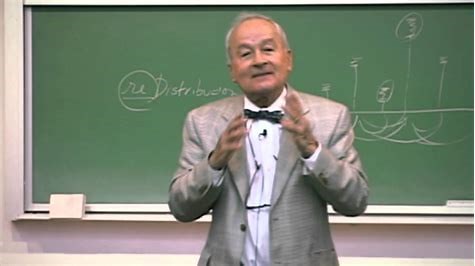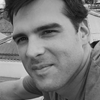“Nothing is so contagious as example; and we never do any great good or evil which does not produce its like.”
– Francois de la Rochefoucauld (1613–1680)
Heroes for liberty are not particular to any region of the world or to a particular time period or to one sex. They hail from all nationalities, races, faiths, and creeds. They inspire others to a noble and universal cause—that all people should be free to live their lives in peace so long as they do no harm to the equal rights of others. They are passionate not solely for their own liberty, but for that of others as well.
In my last book, Real Heroes: Inspiring True Stories of Courage, Character and Conviction, I wrote about 40 individuals whose views, decisions, and actions served this cause in various ways. That book planted the seed for this new weekly series to be published each Thursday at FEE.org. But this time, others from around the world will do the writing, and I’ll be content to do the editing while keeping that to a minimum to preserve the author’s voice. It is my hope that when all is said and done some months from now, the literature of liberty will be greatly complemented by this collection of short biographies. The authors will be writing about heroes for liberty who are (or were) citizens of each author’s own country. Each week’s installment will be added to the collection here.
The subject of this fifteenth essay in the series is a man whom both the author and I knew well and deeply admired, Manuel Ayau of Guatemala. I am especially pleased that in the years since he passed away in 2010, the relationship between FEE and the university he founded has flourished. The author of this essay, Alfonso Abril, was Ayau’s personal assistant for four years.
– Lawrence W. Reed, President,
Foundation for Economic Education
Unfortunately, Guatemala is a poor country, but we were richly blessed by the late Manuel “Muso” Ayau, who was born here in 1925.
Muso believed in education, especially the education of intellectuals and other influencers to ensure a proper understanding of economic principles.
Though he passed away in 2010 at the age of 84, his name is familiar to long-time followers of FEE. He wrote many articles that are still searchable on the FEE website. Former FEE president Donald Boudreaux wrote about him here, and current FEE president Lawrence Reed interviewed his grandson Pedro here. The Boudreaux article explains how he got his unusual nickname.
What can an honest citizen do to change a poor country for the better? Muso knew the recipe. Let me tell you how I interpret this Guatemalan hero’s vision and how his legacy contributes toward building a prosperous Guatemala.
Our country is full of smart and passionate people. We have splendid weather, bountiful natural resources, and a strategic location with access to the Atlantic and Pacific Oceans. So why is Guatemala poor? The reason lies in our weak institutions and flawed ideas, not in a lack of resources. Changing ideas so people support institutional reform, and then making those institutions work in people’s favor to create a prosperous society were the challenges that Muso tackled.
Muso's Passion for Education
But first, Donald Boudreaux explains some background:
Following the wishes of his late father, Ayau studied in the United States. He attended high school in California and earned his degree in mechanical engineering from Louisiana State University. During this time, in the midst of World War II, he also volunteered for a stint in the Royal Canadian Air Force. Muso then returned to his native Guatemala to manage a family firm that produced industrial gases.
Soon encountering burdensome regulations, corrupt bureaucrats, and absurd taxes, he joined with other Guatemalan businessmen seeking to free consumers and producers from the then-dominant command-and-control regulatory regime that was suffocating commerce. But as Muso once recalled to me, “I quickly became disillusioned. Even when we won a battle now and then, we continued to lose the war against statism. I realized that we would make no real progress unless we changed the underlying ideas of the people. We had to take a long-run perspective. I learned that freedom must triumph in people’s minds and hearts before it can make any headway in politics.”
Muso believed in education, especially the education of intellectuals and other influencers to ensure a proper understanding of economic principles and the philosophy of freedom. Then, when these thinkers actually run public institutions someday, they would be well-prepared to succeed.
In 1958, he co-founded the Center for Economic–Social Studies (CEES), which began publishing and disseminating its own analyses of Guatemalan issues and also translating and distributing classic works in freedom literature such as Frédéric Bastiat’s The Law.
Muso was convinced that a small group of people could change a whole country for good. He had heard FEE’s founder and personal friend Leonard Read say on many occasions that “every great movement has been led originally by an infinitesimal minority.” He was also inspired by the small elite of profound thinkers we call America’s Founders.
Founding a University
Once he set his mind on fostering a free and prosperous Guatemala, it wasn’t a deterrent to him that only a few shared his perspective. Undaunted by obstacles and skepticism, he founded Universidad Francisco Marroquín (UFM) in 1971, now a leading private university in Guatemala City, one of the finest in Latin America, and a beacon of freedom ideas. UFM, where academic excellence is a passion, is where I studied business.
Muso established a rule at the founding of the University: Every student, no matter what his or her major field of study, must enroll and pass the “Economic Process and Philosophy” courses. Those courses acquaint students with the “Austrian School” of Economics, particularly the insights of two giants among 20th-century economists, Ludwig von Mises and Friedrich A. Hayek. With that policy in practice at the university now for more than 40 years, solid free-market economic ideas have been spreading, slowly but surely, across the country.
UFM is without a doubt the most important and enduring achievement of Manuel Ayau.
A businessman and engineer by formal training, Muso learned economics on his own. He was an autodidact. A key influence on him was his friendship with Nobel laureate Hayek, who convinced him to start a university. Hayek had observed with dismay how the London School of Economics had inculcated Britain’s intellectual elite for decades with socialist ideas which then became the platform of the Labour Party. He thought Muso could do just the opposite with a university in Guatemala that focused on freedom and free markets.
UFM is without a doubt the most important and enduring achievement of Manuel Ayau. His energy and his spirit endow every building and room on a stunning campus—in particular, the Mises Library, the Hayek Auditorium, the Atlas Libertas Sculpture, and the Liberty Plaza.
The University teaches free-market economics and the philosophy of freedom to influential leaders of the future. The budget of UFM amounts to more than $30 million per year, a very significant figure for Guatemala. Visiting intellectuals from all over the world ensure lively discussions that keep the professors experts on the most innovative trends and ideas.
Political Activism
But Muso also knew that political activism is necessary sooner or later. Education is not enough. We need to get out of the comfort zone inside the academic world and fight for freedom in the political arena. This is where I personally became involved.
I worked as Muso’s personal assistant for four interesting years (2005–2009) while he was leading the civic movement called ProReforma. Our mission was to propose an amendment to the Guatemalan Constitution. The Constitution has 281 articles. We proposed reform to 72 of them.
Hayek’s 1973 book called Law, Legislation and Liberty had a great effect on Muso and his reform ideas. In that book, Hayek presented the idea of separating the law from legislation (nomos and thesis). It inspired Muso to propose splitting Congress into two chambers, one responsible for the law and the other for legislation. The former would focus on the great codes of private rights that give society long-term rules and stability. F. A. Hayek called them “universal rules of just conduct.” The other chamber would be responsible for legislation governing the operations and budget of the government.
To Muso, the main purpose was to educate the public by demonstrating new ways of organizing and preserving representative democracy.
To have a vibrant economy, Muso knew the rule of law was fundamentally necessary. Therefore, a deep understanding of the law followed his studies in economics. He arrived at the conclusion that the economy depended on the respect of the rules of just conduct. He used to affirm: “The market economy is not a model; it is what happens when the individual rights are respected.”
We worked hard on this reform process. We collected more than 73,000 supportive signatures. We defended our proposals in Congress before open hearings. We went to public debates. Practically every day, we appeared in the media and lobbied congressional representatives, politicians, and journalists. By this time, Muso was 80 years old but still possessed the energy of a 30-year-old man. Tragically, amidst all this activity he was diagnosed with lung cancer. Enduring physical pain, he demonstrated incredible passion and perseverance, explaining the project sometimes to audiences six or eight times a day.
He knew the project faced serious obstacles for its ratification by Congress, mainly because the President of the country was a far-left ideologue who did not sympathize with the reforms. To Muso, the main purpose was to educate the public by demonstrating new ways of organizing and preserving representative democracy.
ProReforma included a specific amendment to the Constitution that instructed judges to give priority to individual rights when so-called “social rights” violated them. One example is freedom of association, meaning that every citizen would have the option of not being forced to associate with particular institutions. Social Security, for instance, forces workers and their families to be associated with it whether they like it or not and whether or not they could do better with a voluntary alternative.
Hope for the Future
The reform project was the culmination of Muso’s intellectual journey. He prepared all his life for it and served it in Herculean fashion. Though it did not ultimately become a part of the Constitution, he planted many seeds that may yet sprout another day.
It falls to the present and future generations of UFM students to influence the country in the right direction.
In addition to being a university founder and an important activist for reforms to strengthen freedom, Muso wrote a weekly column in the largest newspaper of Guatemala for more than 50 years. He never missed a single week in that half-century. He also wrote more than eight books, meticulously edited and double-checked by his patient and honorable wife, Olga. He served for many years on the FEE board of trustees, including during the period that current president Lawrence Reed chaired the board.
“I cherished every minute I spent with Muso in conversation,” Reed recalls. “He was forever kind, gentle, persuasive, professional, insightful, and fun to be around—a role model for liberty in every way.”
With more than half of Guatemalans still living in poverty and freedom not yet universally understood and embraced, Manuel Ayau’s mission is not complete. It falls to the present and future generations of UFM students to influence the country in the right direction. Muso did his part. Now we who were inspired by him must do ours.
One day in the near future, when you hear of the “Guatemalan economic miracle,” you will know that the good work of our hero Muso Ayau has finally come to fruition as an example for the world.


